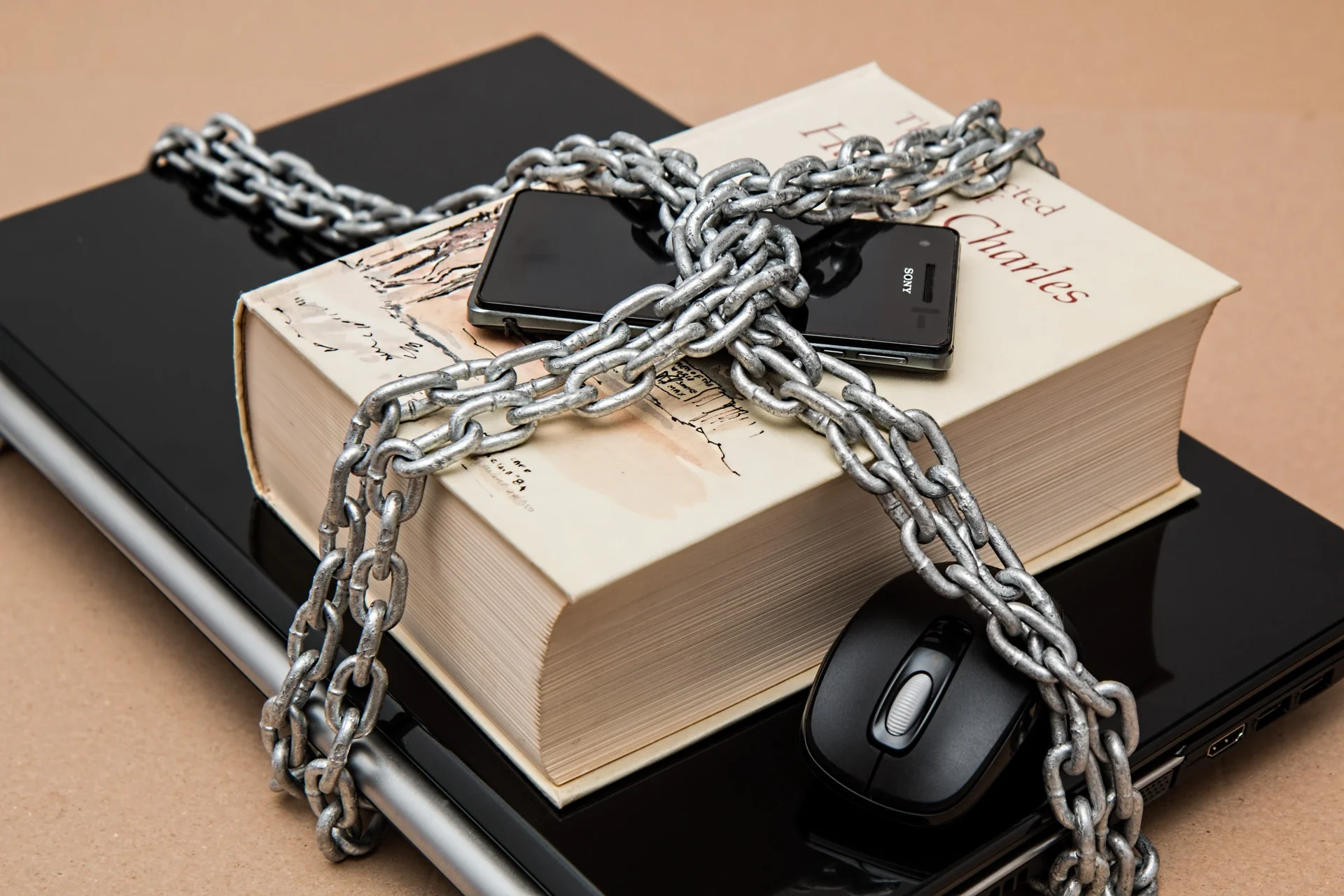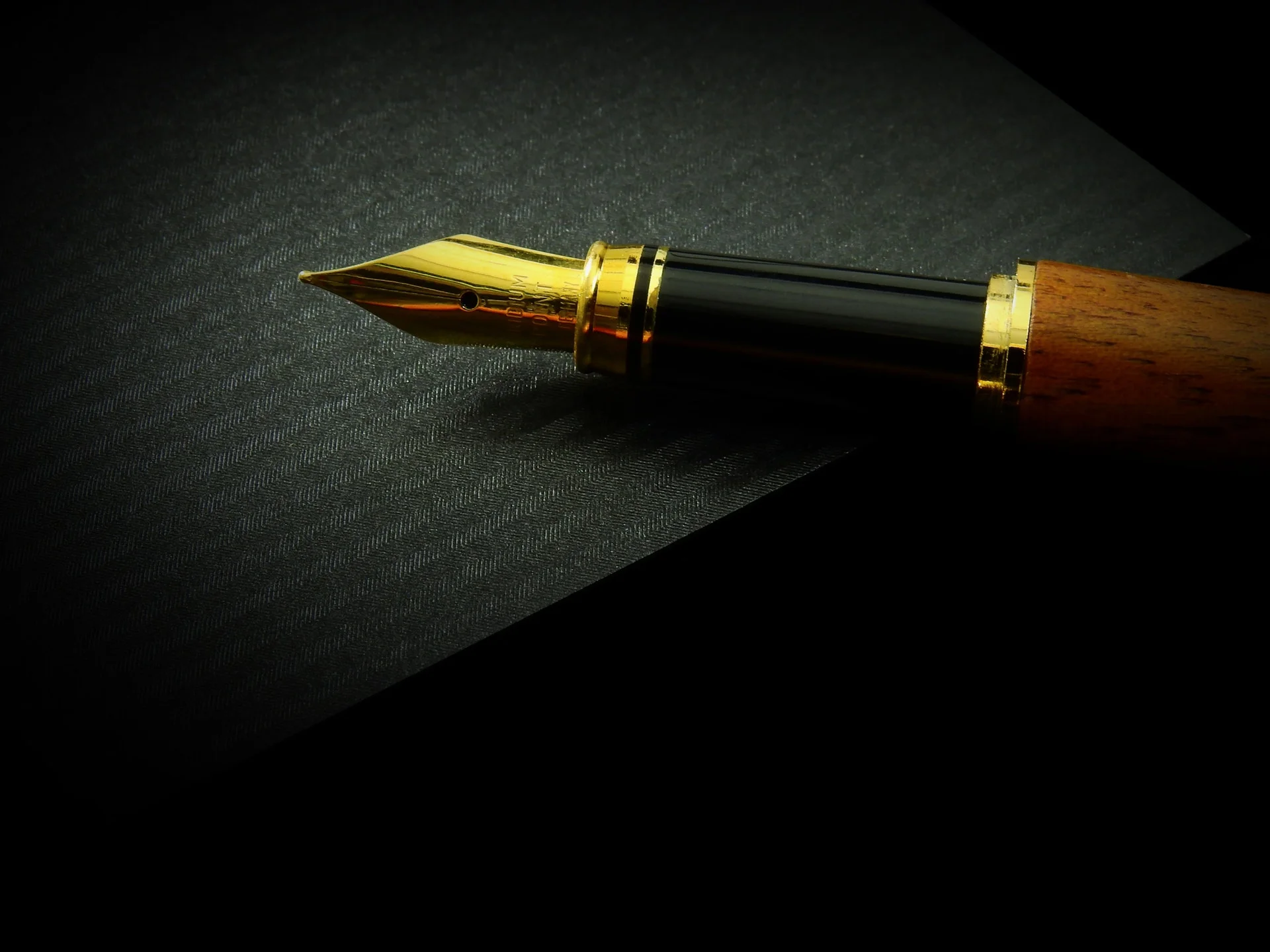The Writing Zone: Stage 13a - Copyright Infringement
One of the decisions I made early on when writing my novel was the inclusion of real-world song titles, such as Deee-Lite's "Groove Is In The Heart." Having one of my characters actively listen to music while working, or having certain songs being played in the background during certain scenes, was something I envisioned and I ran with it. I didn't use too many songs - fewer songs than fingers on one hand are referenced throughout my entire novel - but they are there, and people will certainly notice their presence.
Though I did some cursory research into copyright law to ensure I wasn't falling fowl of anything by making this choice, a brief discussion on Twitter brought this back into the forefront of my mind. The scenario: A writer wanted to use parts of song verses in his novel, but decided against it due to the possibility of copyright infringement. There was a healthy back-and-forth regarding what is possible regarding the inclusion of songs (titles, lyrics) in fiction, but the entire conversation made me wonder: How else can a writer potentially find themselves in hot water due to copyright infringement?
About Copyright Protections
To begin our journey into the world of copyright, let's start at the ground floor and discuss what it is at the core. In the United States, us creators have it pretty good: The moment you take an original work and "make it tangible" (ex: save a Word/GDoc/Notepad file with original content; you type up the first chapter of an original story on a typewriter or written with ink on paper), it's copyrighted. Nothing to submit to the US Copyright Office, no money needs to exchange hands.
These rights are extensive and grant the creator a fair amount of leverage over their work, ranging from having the right to create derivative works (other stories or media that is based on the original), the selling and reproduction of said creation, and being able to sell the rights to your creation to another - to name a few.
Copyright applies to "original works of authorship," both published and unpublished. And again, they have to exist in a tangible format - a story that exists only in your head cannot be copyrighted, but once you start writing it falls under copyright protections. Works that are covered by copyright include literary works, music, audio-visual media, and works of art (paintings, sculptures, digital art).
Time to Get Dirty
Copyright infringement occurs when someone, either accidentally or deliberately, violates another person's rights that are covered by their copyright protections. In the world of writing, this can occur the moment you decide to quote, excerpt, or reproduce a segment of a copyrighted medium. An example, jumping back to the Twitter conversation, is using part of a song's lyrics in a novel. Other examples include:
- Having a paragraph from a published novel being replicated and quoted in your book for whatever reason (maybe a character is reading said book to themselves);
- Copying entire sentences out of Wikipedia in order to explain a concept in a story as if a character is explaining it (yes, I've seen this before in self-published e-books and it's a terrible practice).
If you feel like something you are aiming to write into your novel may breach copyright law, there are three courses of action:
- Get permission from the copyright holder;
- Cut it from your work;
- Take a chance (quick tip: don't do this).
Before diving into at least two of the above choices, let's tackle the two big questions: "When is permission not required?", and "What about 'fair use'?"
Here's Your Pass!
Yes, there are exemptions to even creative works where US copyright law is concerned.
- Any creative works that are in the public domain.
- For one of my short stories I integrated the majority of the lyrics to "Take Me Out to the Ball Game" by Norworth and Von Tilzer, a classic that was written in 1908. I am allowed to do this because the lyrics to the song are in public domain today.
- Mentioning the title or author of a work.
- Again, referencing my own novel (and what was stated at the beginning of this post), I use the titles of songs in my story, something one can freely do. Similarly, I reference the title of another popular book and its author as well. In both cases, I am in my rights to do this.
The 'Fair Use' Doctrine
Now we enter some murky waters.
According to US copyright law, "fair use" allows someone to reference a limited amount of copyrighted material without requiring permission to do so. What is the criteria for determining this? According to copyright.gov there are four criteria to consider when looking to cite fair use:
- The purpose and character of the use.
- If you're creating something that falls under the "nonprofit educational or noncommercial" banner, then you'll have a very strong fair use argument. However, it's worth noting that just because something is written to be nonprofit/noncommercial doesn't mean references in it fall under fair use - the remaining criteria are still factored into any decisions made.
- The nature of the copyrighted work.
- "Creative or imaginative works" receive the strongest protections, whereas factual works (research papers, news articles) are fair game for citations and references.
- The amount and substantiality of the portion used in relation to the entire quoted work.
- This can be a bit trickier, but in short, this looks at the "quality and quantity of the copyrighted material" referenced. If you are pulling a sentence out of a book that's over one hundred thousand words long, and that sentence isn't considered a critical piece of that work contextually, then you may have a reasonable fair use argument. However, quoting the lyrics to a song can be much tougher to defend since the word count for a song is significantly smaller than a book, thus making the per-word value much higher.
- The effect of the use on the potential market for or value of the quoted work.
- If what you are quoting is considered enough to prevent someone from buying the quoted work, fair use will not apply.
If there is a perfectly valid reason for you to have a line or two of a song or book in your novel, the most prudent course of action is to get permission from the copyright holder. But what does that entail? What are the steps to receiving permission from a copyright holder to reference their work in yours? How much does it usually cost?
It's just best to avoid quoting from another creative work unless you have a good reason - if you do, then seek permission to use it.
I've decided to do something I haven't done before and split this post into two parts (I bet you were wondering what the purpose of the "a" was in the title). The other half of this Writing Zone will cover all the details behind getting permission from a copyright holder and the entire process behind it - and the potential pitfalls after the fact.
If you have any questions, leave them in the comments below! In the meantime, I also recommend checking out one of my earlier Writing Zone posts if you want to learn more about writing and the law. One of my posts from September 2017 covers the equally heavy subject of trademarks, character defamation, and libel.
See you next week for part two!



